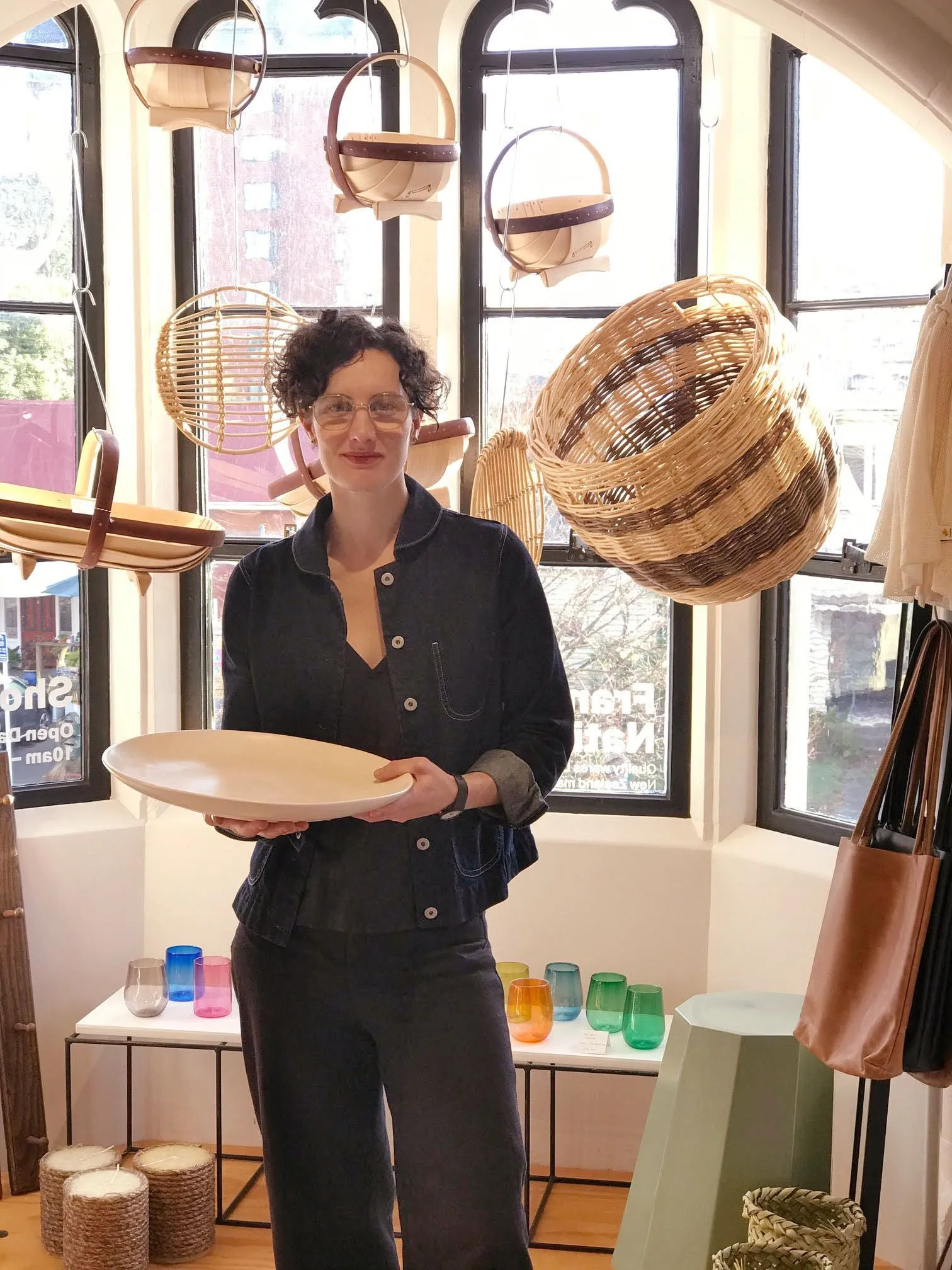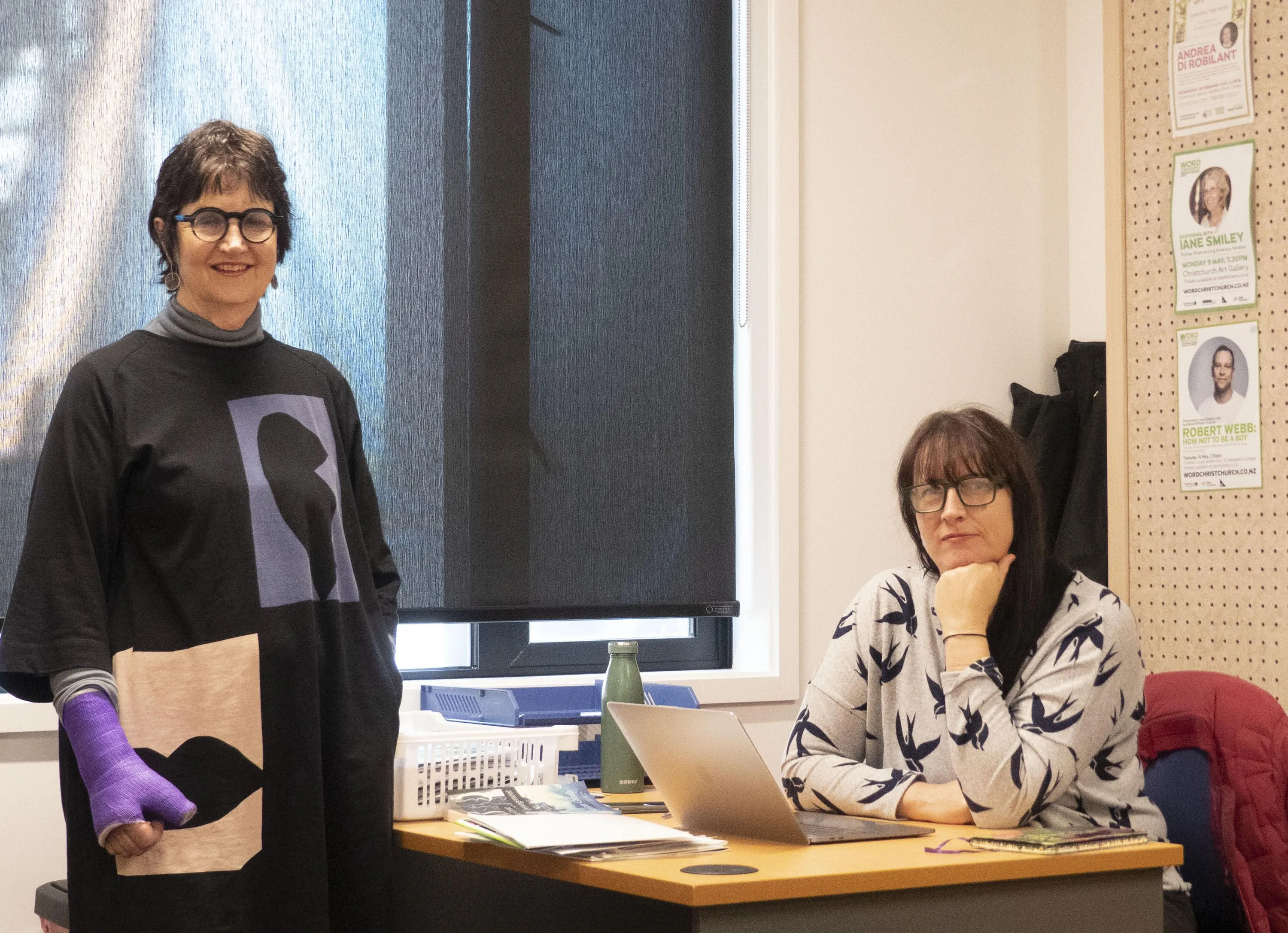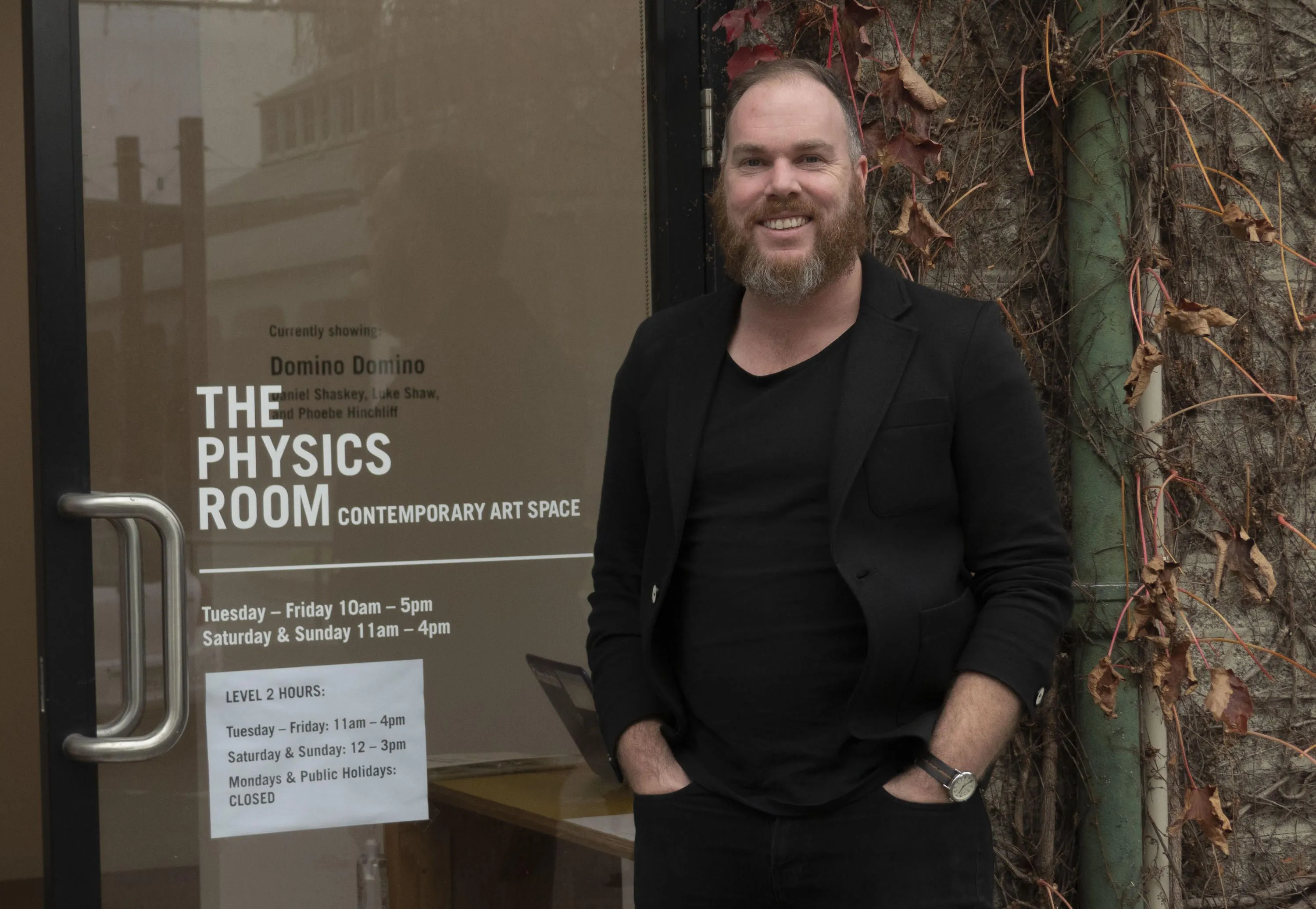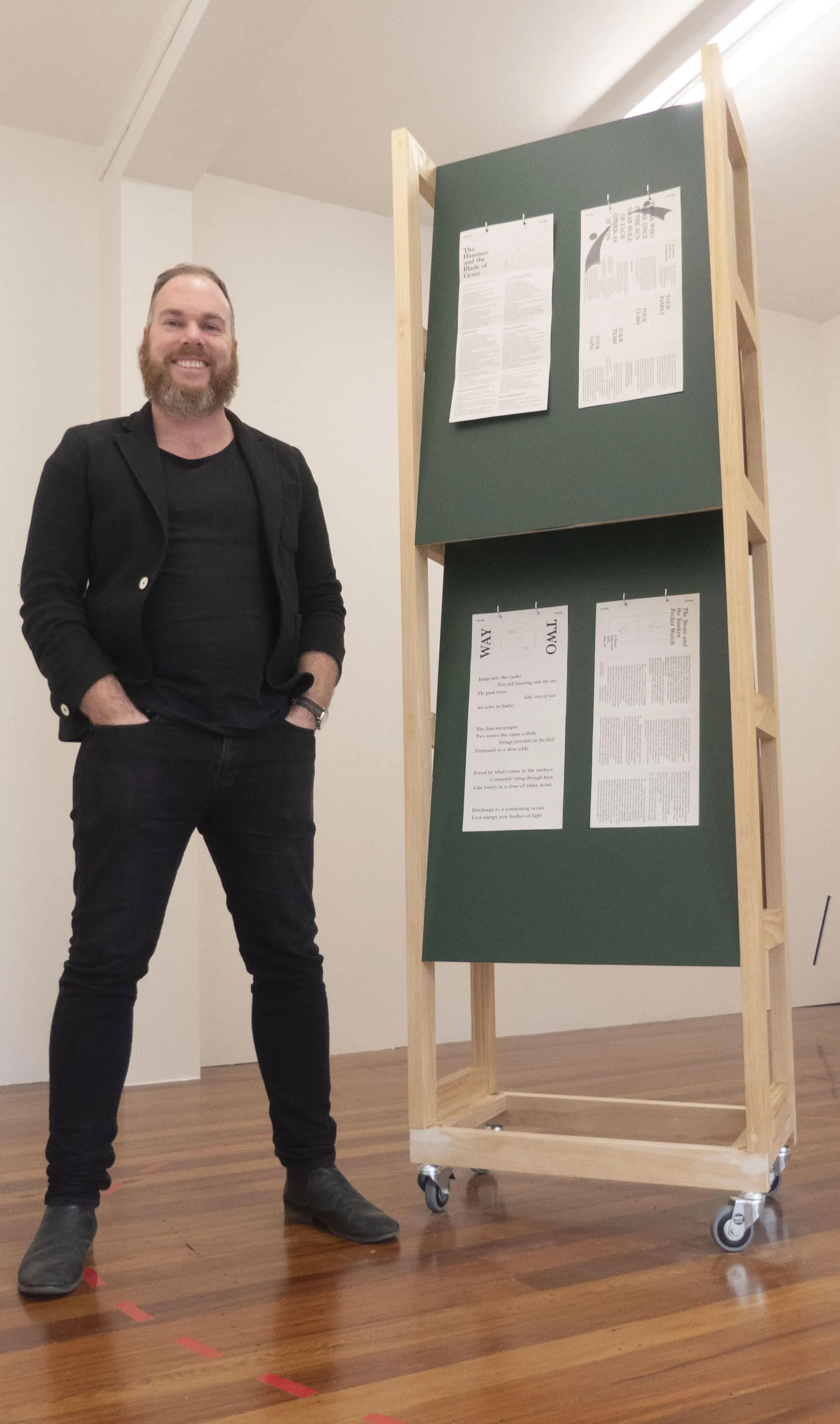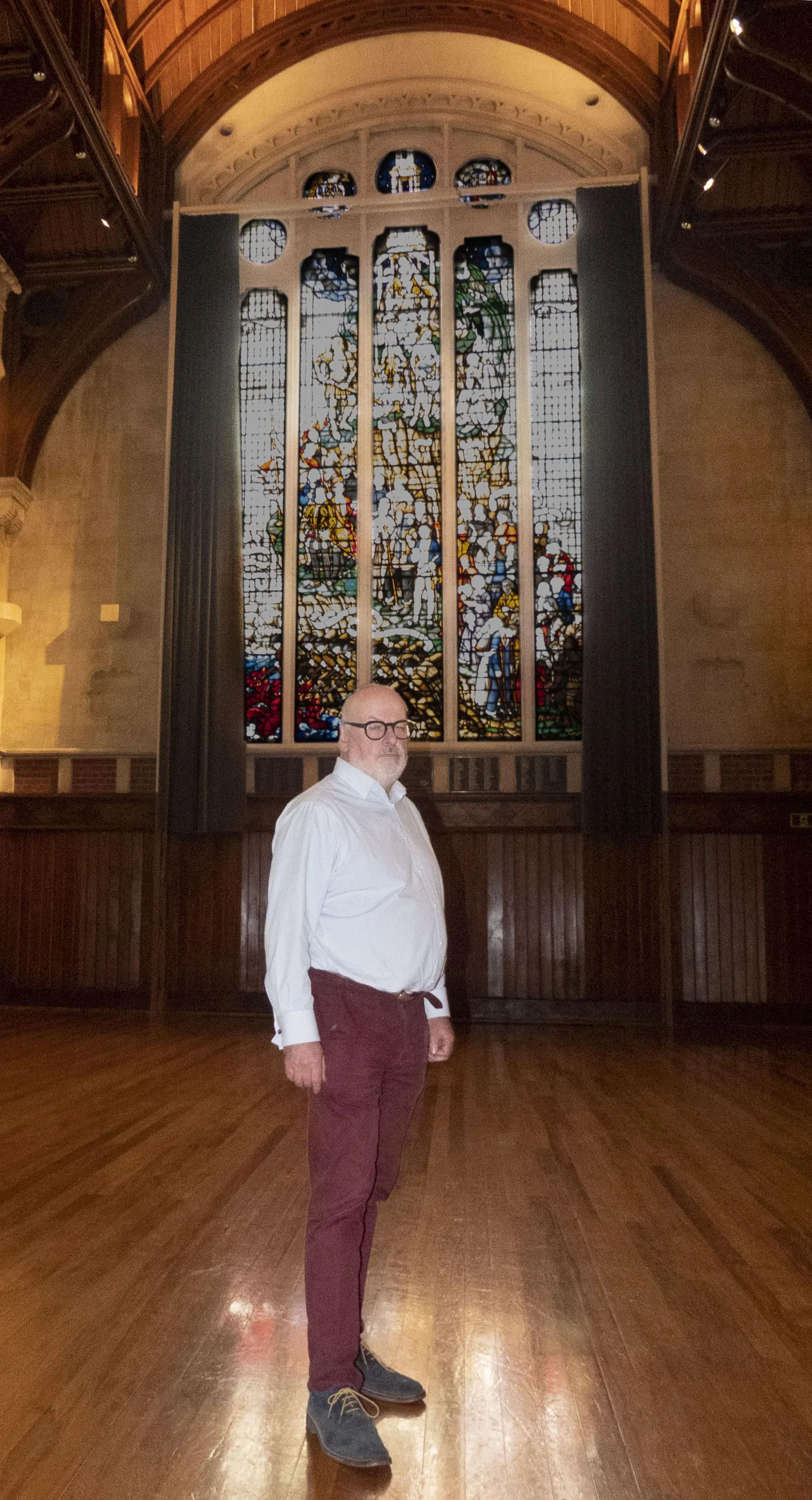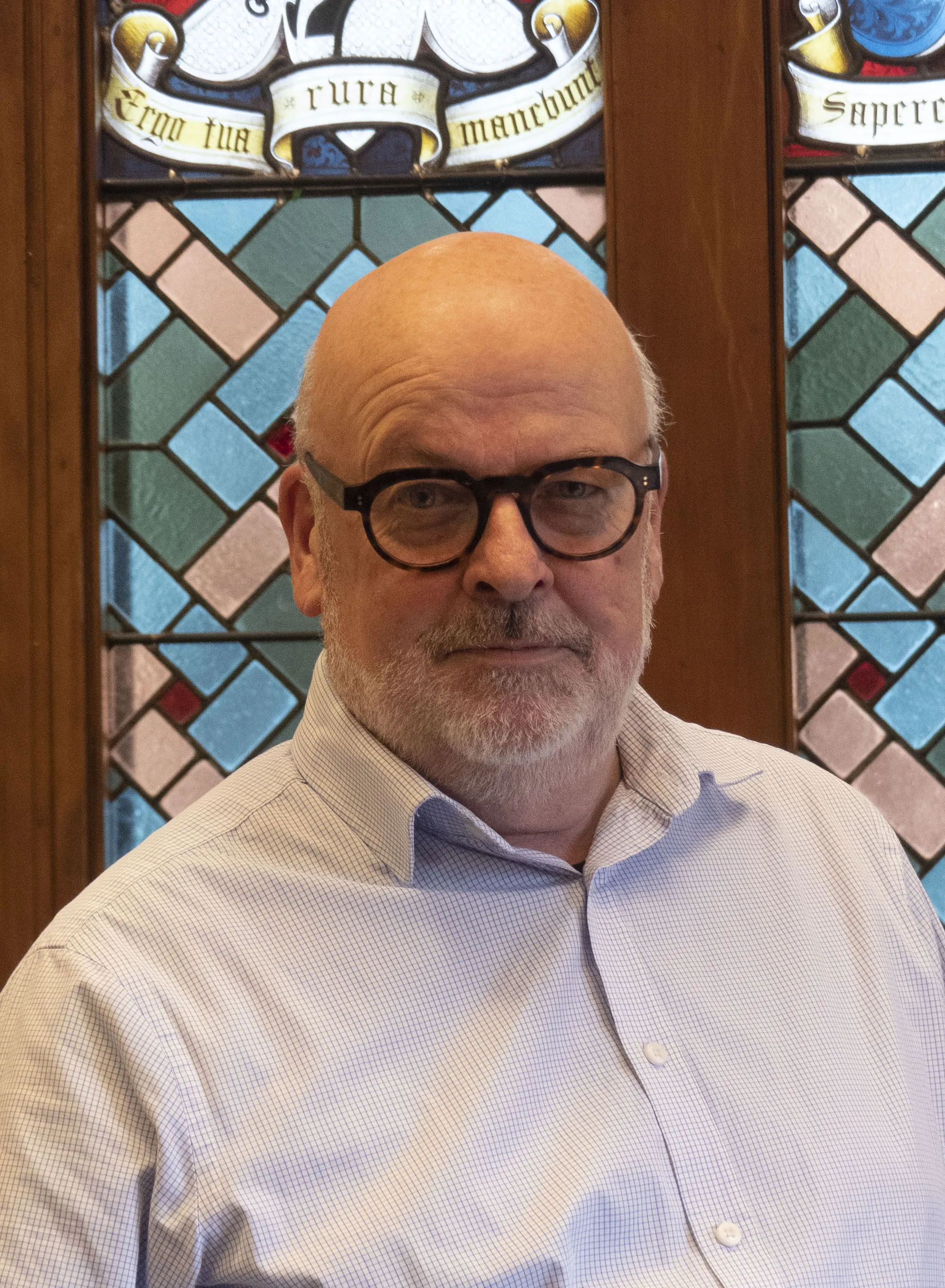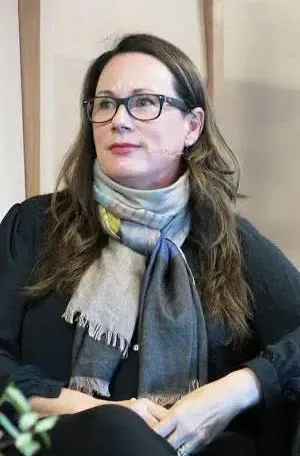Ready to Rise Again
Written by
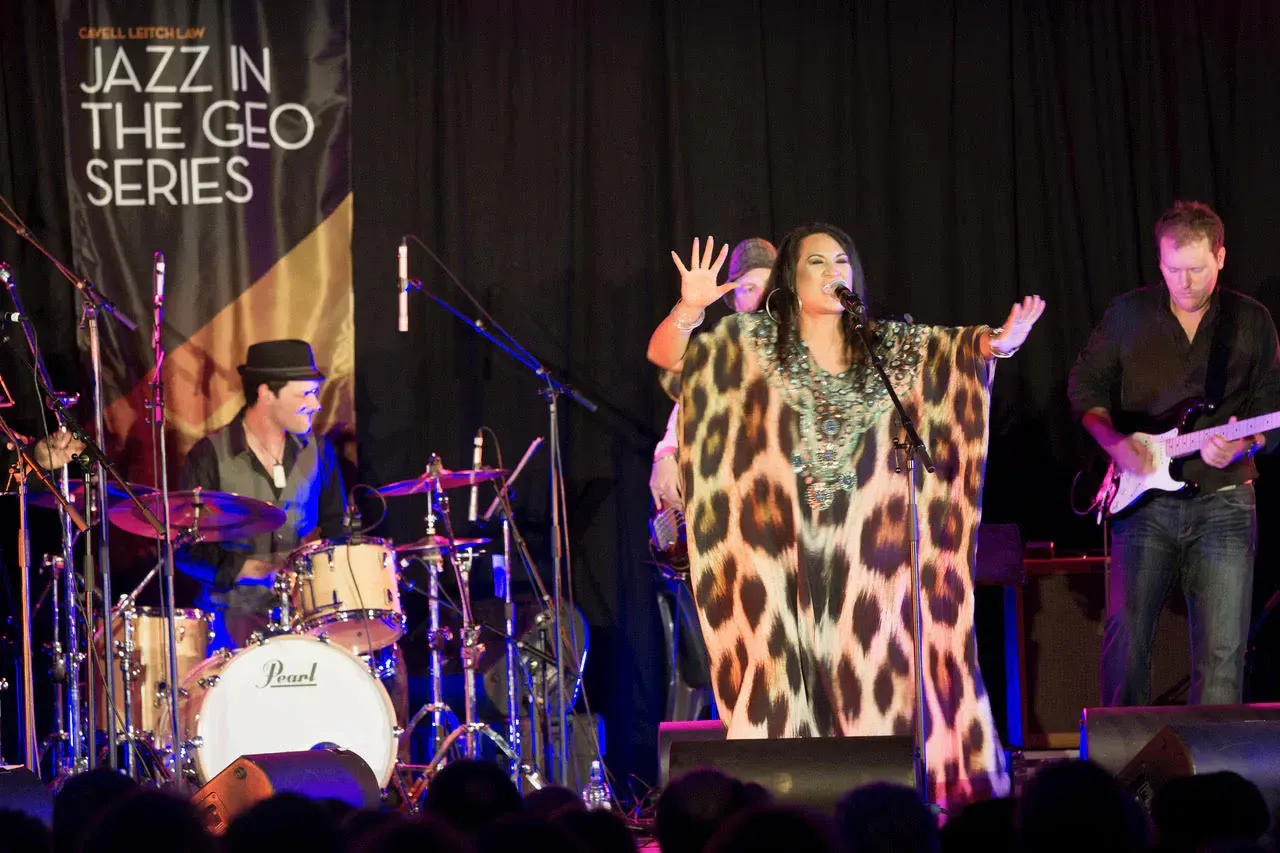
The scramble for funding is now on as the Christchurch arts community emerges from COVID-19 lockdown into an uncertain future.
The pandemic is the second big shock in a decade for a community which was left reeling after the earthquakes of 2010 and 2011.
A Different Kind of Horrible
Things are different now, according to veteran performing arts promoter Jodi Wright, the power behind such iconic Christchurch events as the Buskers and Jazz and Blues Festivals.
Wright says that at the time of the quake, Christchurch had a very proactive and financially-supportive City Council events department, keen to help events such as hers get back on their feet but the current events department has no such clout.
“They could make decisions right away and say yes, we can move into the park. Yes, we can help you do this. Yes, we have this available. That's what happened immediately after the earthquake.
“There was just so much support. There were artists from all over the world that wanted to come. They were like, ‘we want to support Christchurch’.
“It’s different now, no-one wants to stand next to each other. Then, we couldn’t wait to stand next to each other!”
She says the COVID situation is “a different kind of horrible” that makes the creative industry get really creative.
Getting Back to Business
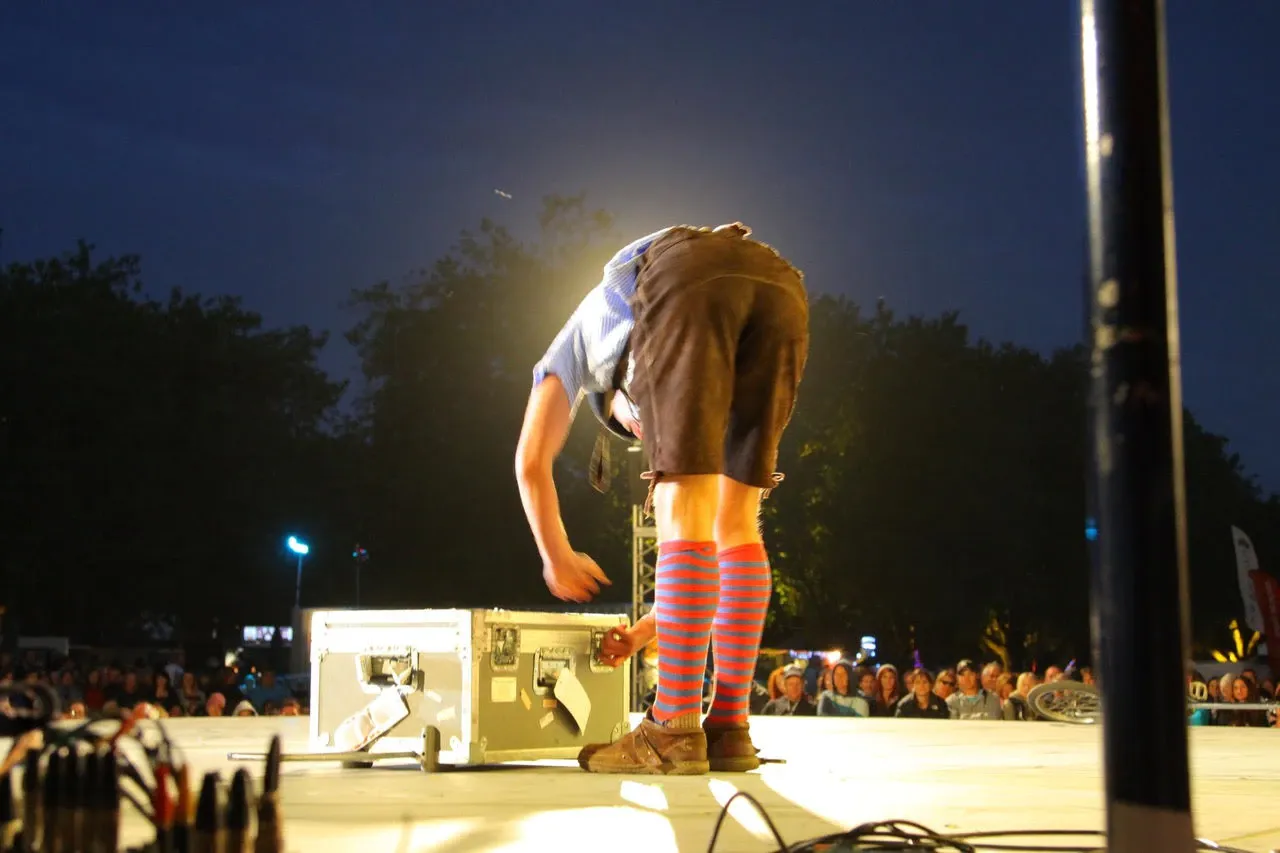
A performer onstage in Hagley Park for the 2012 World Buskers Festival - the first held since the Christchurch earthquake. Photo: Supplied/Jodi Wright.
This year’s jazz event had been scheduled for May, rebranded and re-angled as the inaugural Jazz and Cabaret Festival. Instead, it has been postponed, at least to late November.
Wright says the Jazz Festival Trust already went through much of its budget getting to May. She spent the Level 4 lockdown writing to the City Council and other organisations “that would have an interest in keeping the festival going” in the search for funding for the rescheduled event.
“But I haven’t heard,” she adds.
Wright - arguably Christchurch’s most experienced performing arts promoter; the Jazz and Cabaret festival, when it happens, will be her 75th – has also applied to Creative NZ for support. The event didn’t qualify for the first round of COVID emergency grants announced by CNZ, since that only applied to projects expected to be complete by 30 September.
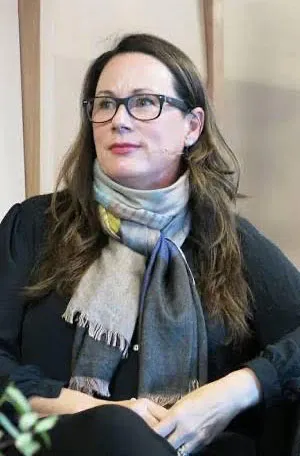
Christchurch performing arts festival promoter Jodi Wright. Photo: Supplied/Jodi Wright.
Keeping it Kiwi
However, if there is a silver lining to the pandemic, it is a new focus on local and national artists.
More by good luck than by design, the only overseas acts Wright had lined for May were three Australian headliners who she hopes will be allowed in come November. She hopes to be able to put on essentially the same show.
“But we can get away with just a New Zealand festival, which would be great because so many artists are hungry - not just literally, I mean artistically hungry - to perform, to create. There's 108 New Zealand musicians and artists scheduled for this festival.”
Word Up (and Down)
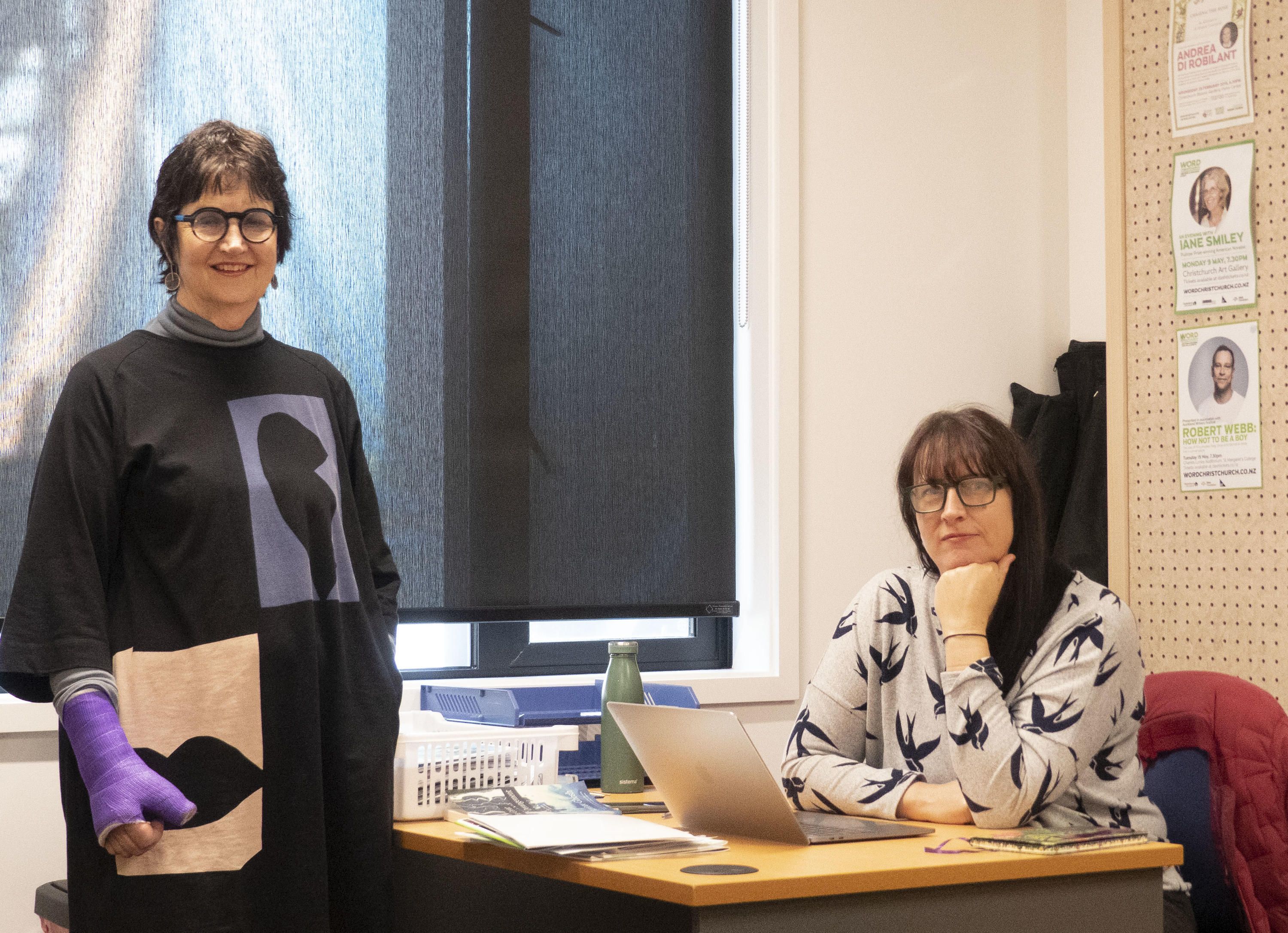
Word Christchurch Executive Director Marianne Hargreaves, left, and Programme Director Rachael King on their first day back in their city office after the COVID shutdown. Photo: Nigel Malthus.
Another major Christchurch arts event hit by the pandemic is the biennial Word Christchurch writers festival, which was scheduled for August and has now been postponed to 2021. But it will be replaced this year with a new mini-festival celebrating exclusively New Zealand writing.
Word Christchurch Executive Director Marianne Hargreaves says they have chosen late in the year - the end of October - for the new festival in the hope that more theatres and other venues will be available as things slowly return to normal.
It will be a purely New Zealand festival; they have decided against inviting even Australian writers because no-one yet knows if the border will be open.
“Of course there's good talent in New Zealand and this has made us change our focus. We're really going to highlight New Zealand writers and this will be pretty much their main opportunity this year because the other festivals all had to cancel,” says Hargreaves.
“What we want to do is really give time and space to really good New Zealand writers and Christchurch writers.”
Logistical Focus
Festival Director Rachael King had about 20 overseas writers booked for Word 2020. While calling the postponement a huge disappointment, she is promising a “smaller, more intimate” event instead.
“We're really looking forward to the challenge of creating a new festival in this environment, it will have the same vibrancy and people can still meet authors, get their books signed and buy books.”
However, Hargreaves says the COVID lockdown could not have come at a worse time for funding, as March and April would normally have been the time to sign up sponsors. Box office will be greatly curtailed but they are still hoping to include the usual mix of both ticketed and free events.
“Doing the budgeting now, how do we know what Air New Zealand fares from Auckland to Christchurch are going to be later in the year?”
Local Connection
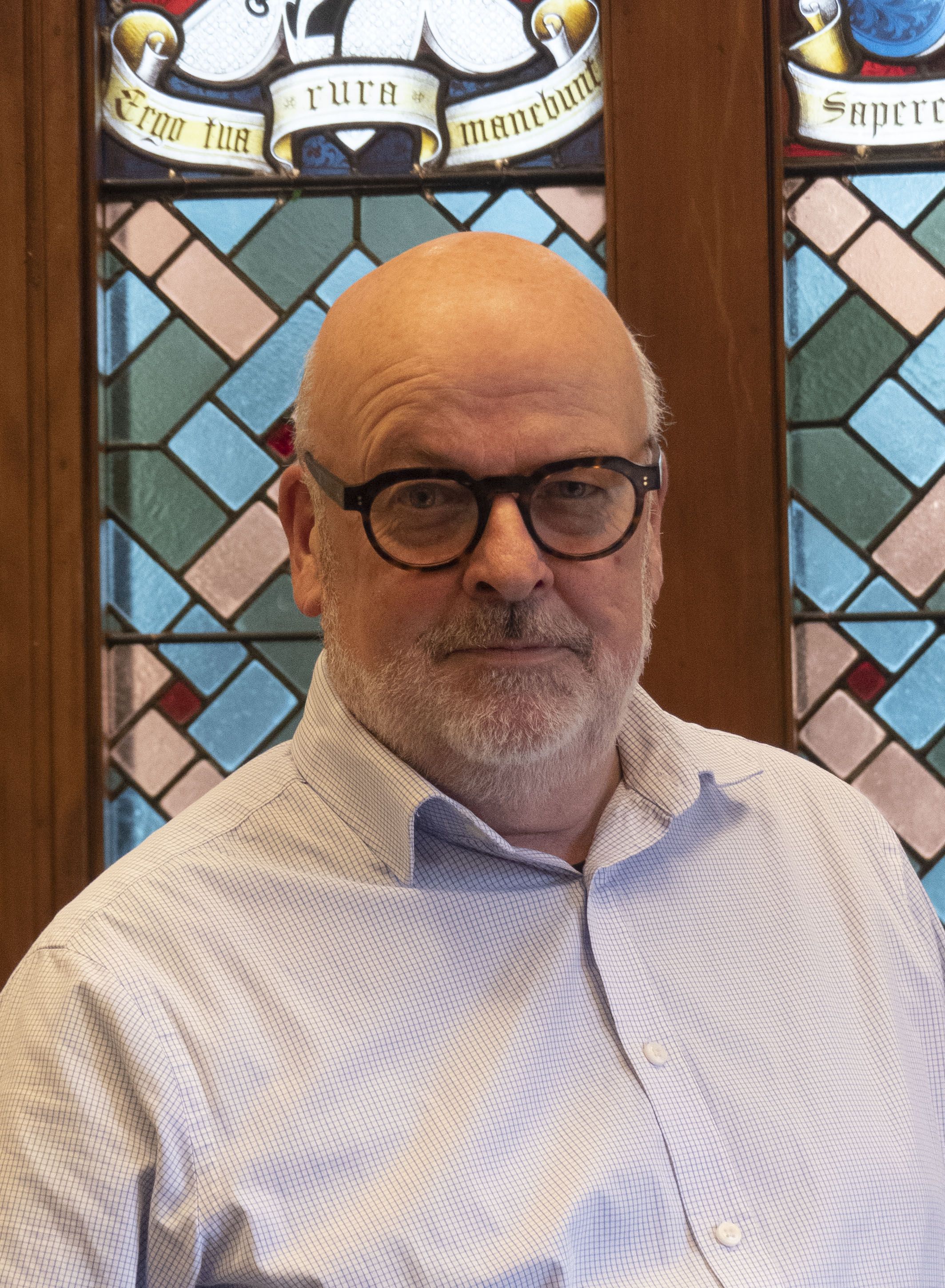
Christchurch Arts Centre chief executive Philip Aldridge. Photo: Nigel Malthus.
Philip Aldridge, Christchurch Arts Centre CEO, says the silver lining to COVID is that artists and others are now reconnecting locally.
"We've seen that burst of creativity online during the lockdown and now we're just going to work out how that is going to change things from now on.
"I don't think you can ever replace the excitement of live performance and there will always be, I believe, a growing need for that - for the community to come together and share an experience in an age when we don't have the old forms of doing that in church services or village hall gatherings.”
Aldridge continues “the performing arts - and sports - have a great part to play in that and I think it's a really basic human need; one, for coming together and two, for sharing stories. That's what we do in the performing arts.”
Support Centre
As a responsible landlord, the Arts Centre offered its tenants a rent holiday, and lost no tenants as a result of the lockdown, says Aldridge. Most tenants have reopened under Level 2 distancing restrictions, and the Centre’s popular Sunday market returned on May 24.
As a non-profit charitable trust dependent on rents for much of its income, Aldridge explains it has been left in a difficult position. But people were rallying around its fundraising efforts, which included direct donations and a givealittle page which raised over $12,000. Their plight even attracting heavy hitters like actor Sam Neill to put his weight behind the effort with a supporting video.
Hands On
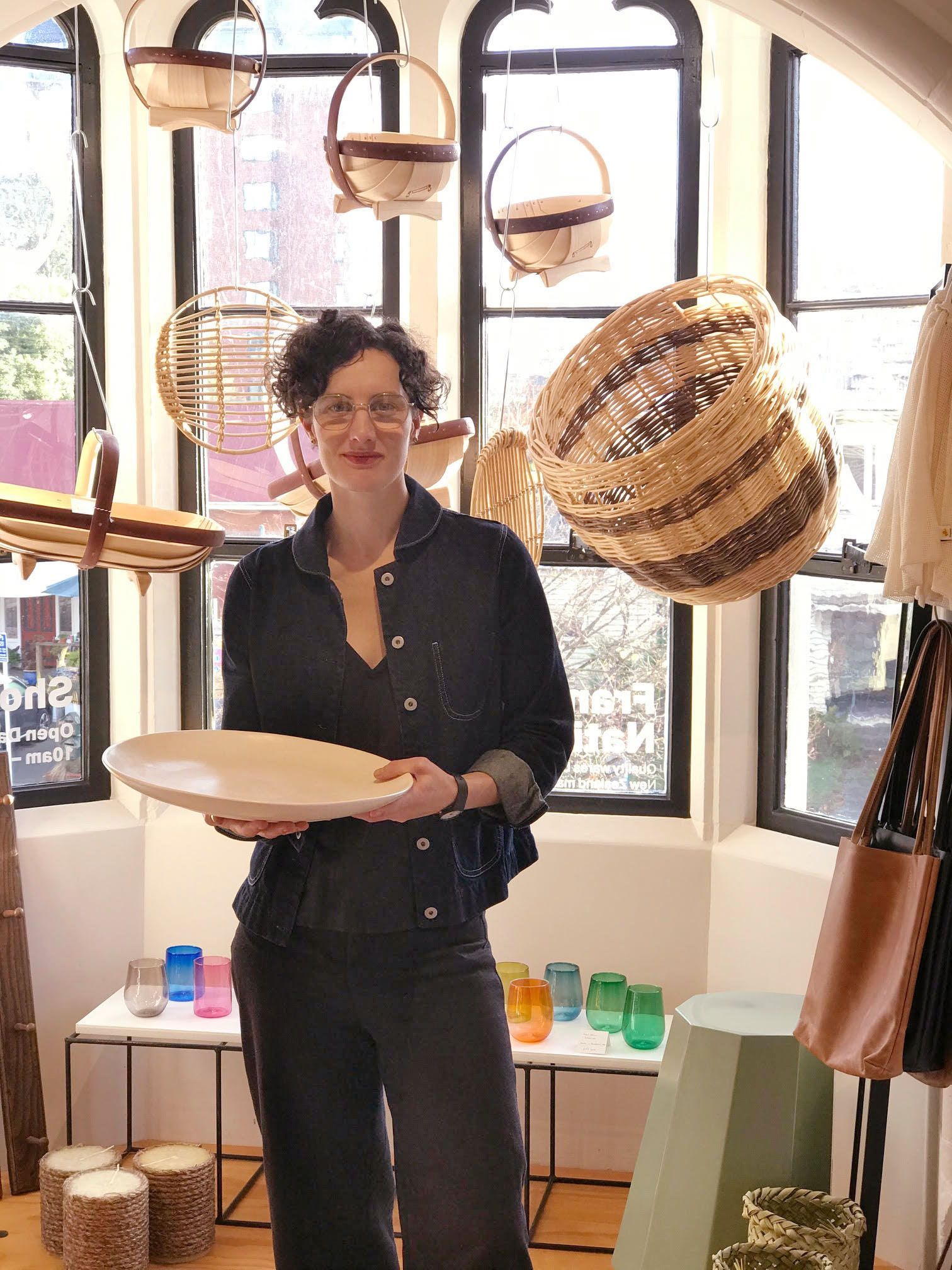
Tessa Peach with a ceramic platter in her Frances Nation Shop in the Christchurch Arts Centre. Photo Supplied/Tessa Peach.
Tessa Peach runs the Frances Nation shop in the Arts Centre, which specialises in a range of functional wares chosen with an eye to quality design and craftsmanship - all made in New Zealand.
Peach reopened as soon as it was allowed under the relaxed Level 2 rules, despite her online sales going “really well” during the lockdown.
“I really love the bricks and mortar and I would always want to keep that,” she says.
“It's a big part of the success of the shop, that it's a really tactile shop.”
Peach believes Frances Nation is “a bit of a destination” for people coming to Christchurch and her online presence through lockdown probably helped broaden her customer base.
“I’ve had a lot of orders from all over the place and that's what kept me alive. I mean, it wouldn't have gone under but it was definitely a really great source of income and it will continue.”
Crafty Cantabrians
Peach agrees that the crafts community appears to be in good heart coming out of the COVID crisis. With a range of suppliers from small-scale artisans working from home to some quite large manufacturers, she says it is probably the manufacturers who are having a harder time of it, because they had staff to worry about and are now playing catch-up after a period of not being able to produce.
She says there is definitely now a growing market for locally-made items.
“That has just taken off a little bit during this time because people are thinking about putting their local economy first.”
Gallery Reopening
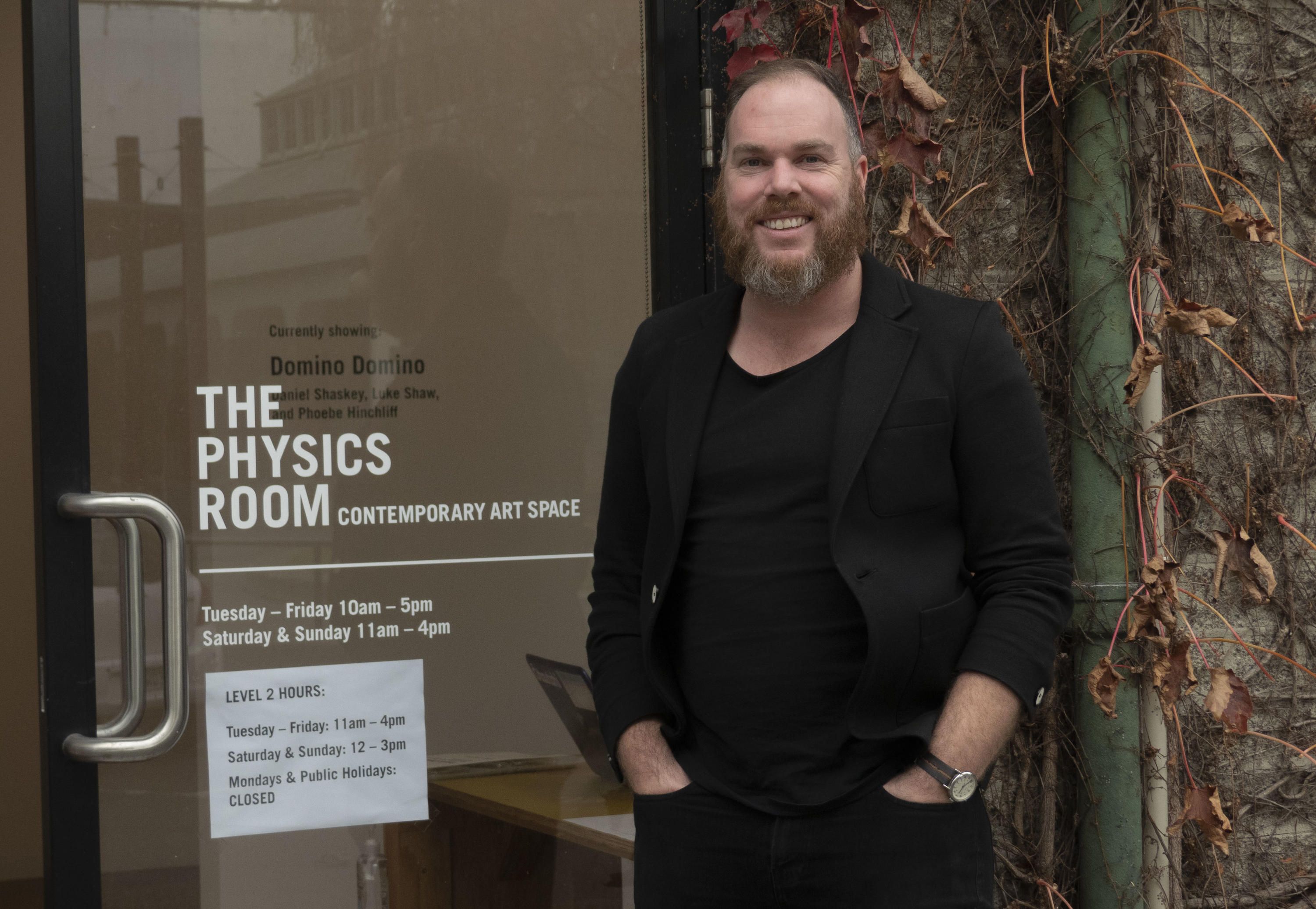
The Physics Room director Jamie Hanton at the gallery’s new space on the Christchurch Arts Centre campus. Photo: Nigel Malthus.
Another Arts Centre tenant, The Physics Room contemporary art gallery, was able to weather the COVID crisis largely unscathed because of the support of Creative New Zealand, with which it has a six-year Toi Tōtara Haemata funding contract.
“We paid rent and paid our staff and continued with the projects, made sure all our artists were being paid,” says gallery director Jamie Hanton. “So aside from us all working from home during lockdown, we've been able to reopen as business as usual."
The gallery has a big publications program, which continued online. Some new online content was supplied by the gallery’s cadre of volunteers.
Mostly artists and art students, the volunteers were not yet back on site as we entered Level 2. But Hanton says that to support them during lockdown, they were invited to contribute to an online project reflecting on the differences between exhibitions experienced in real life or online.
In return, and to make sure they got some sort of income, they received koha in the form of vouchers for Christchurch businesses.
The gallery takes its name from the space at the Arts Centre, originally the old university Physics Department, which it occupied from 1996 until 2002. It returned to the Arts Centre only at the start of this year after several years off-campus, only to almost immediately face the Level 4 closing.
It has now reopened with Domino Domino, an exhibition of works by Daniel Shaskey, Luke Shaw, and Phoebe Hinchliff which expands on and develops work the trio previously exhibited at the Suter Gallery in Nelson.
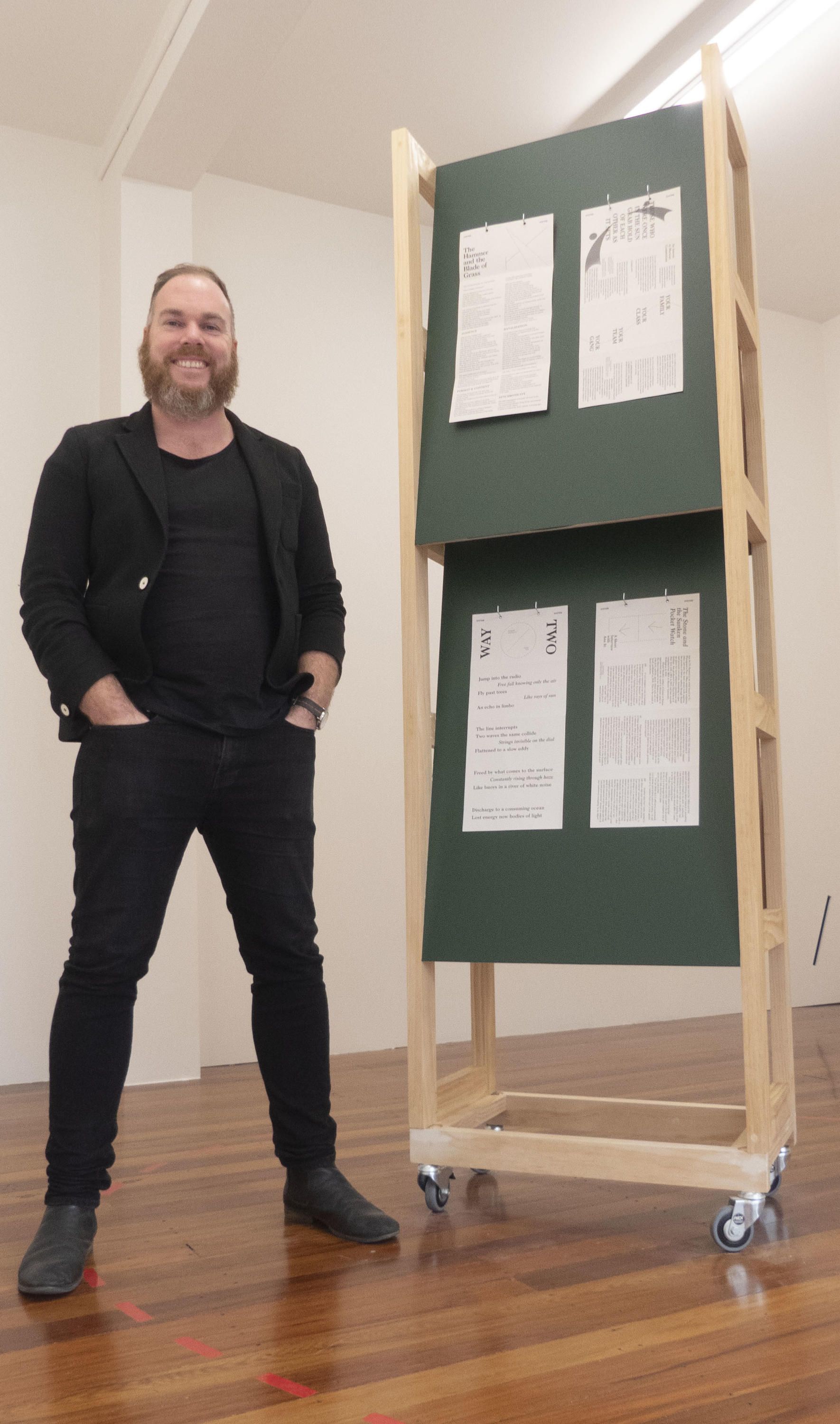
The Physics Room director Jamie Hanton with a work by Daniel Shaskey, part of the gallery’s current Domino Domino exhibition. Photo: Nigel Malthus.
“We had some of our regulars through the door recently. It was really lovely to see everyone's faces again,” says Hanton.
Digital can be overstated, he adds. “We're a gallery and we believe that our community is kind of a physical thing, first and foremost.”
Hanton believes the arts community is lucky that New Zealand has dealt with COVID the way it has.
“I can only really speak to the visual arts with any real expertise but you know all the galleries around us have reopened, or about to reopen, and we're all doing that with social distancing measures and increased cleaning protocols. So we've dealt with it in a really pragmatic way.”
Hanton says that what will be telling over time, is the relationship between the local and the international.
“We show international artists and we host them as artists in residence every year, so we'll be rethinking and thinking through how we act and engage internationally.”
